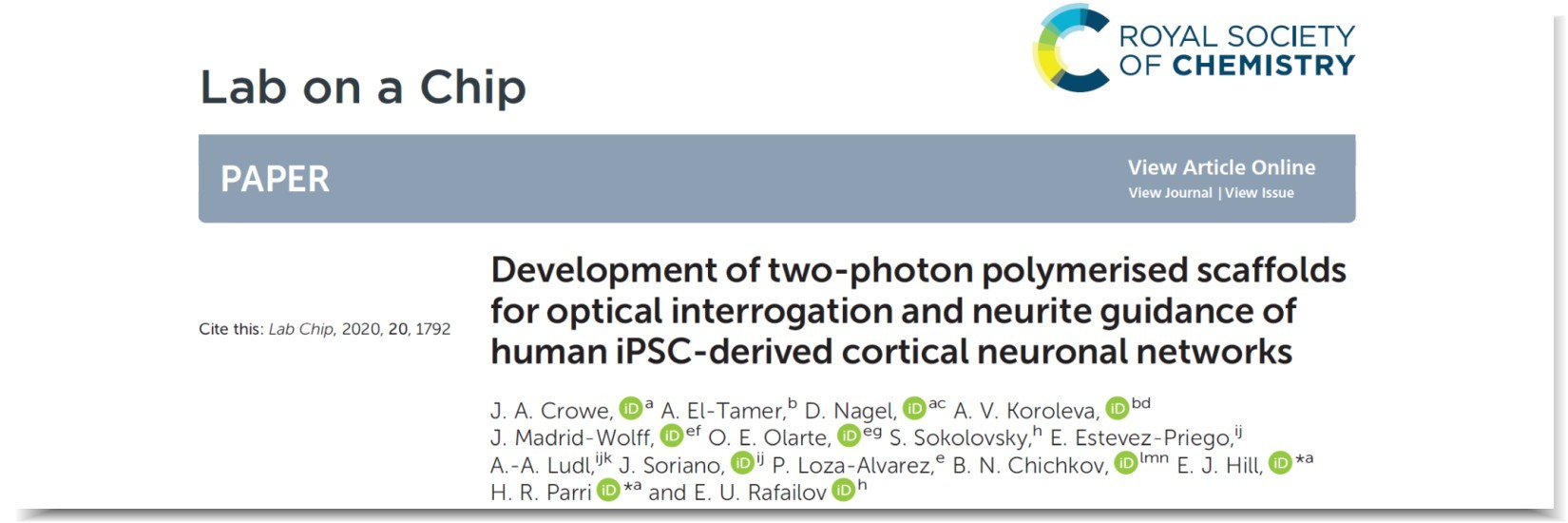Hannover, DE / Brimingham, UK / April 2020 / News from Scaffold-Needs.
We are pleased to announce a recent publication on our work in Scaffold-Needs:
Development of two-photon polymerised scaffolds for optical interrogation and neurite guidance of human iPSC-derived cortical neuronal networks
Crowe, J. A. and El-Tamer, A. and Nagel, D. and Koroleva, A. V. and Madrid-Wolff, J. and Olarte, O. E. and Sokolovsky, S. and Estevez-Priego, E. and Ludl, A.-A. and Soriano, J. and Loza-Alvarez, P. and Chichkov, B. N. and Hill, E. J. and Parri, H. R. and Rafailov, E. U.
Lab Chip, 2020, Advance Article. Open access.
▶ https://doi.org/10.1039/C9LC01209E
Abstract
Recent progress in the field of human induced pluripotent stem cells (iPSCs) has led to the efficient production of human neuronal cell models for in vitro study. This has the potential to enable the understanding of live human cellular and network function which is otherwise not possible. However, a major challenge is the generation of reproducible neural networks together with the ability to interrogate and record at the single cell level. A promising aid is the use of biomaterial scaffolds that would enable the development and guidance of neuronal networks in physiologically relevant architectures and dimensionality. The optimal scaffold material would need to be precisely fabricated with submicron resolution, be optically transparent, and biocompatible. Two-photon polymerisation (2PP) enables precise microfabrication of three-dimensional structures. In this study, we report the identification of two biomaterials that support the growth and differentiation of human iPSC-derived neural progenitors into functional neuronal networks. Furthermore, these materials can be patterned to induce alignment of neuronal processes and enable the optical interrogation of individual cells. 2PP scaffolds with tailored topographies therefore provide an effective method of producing defined in vitro human neural networks for application in influencing neurite guidance and complex network activity.
